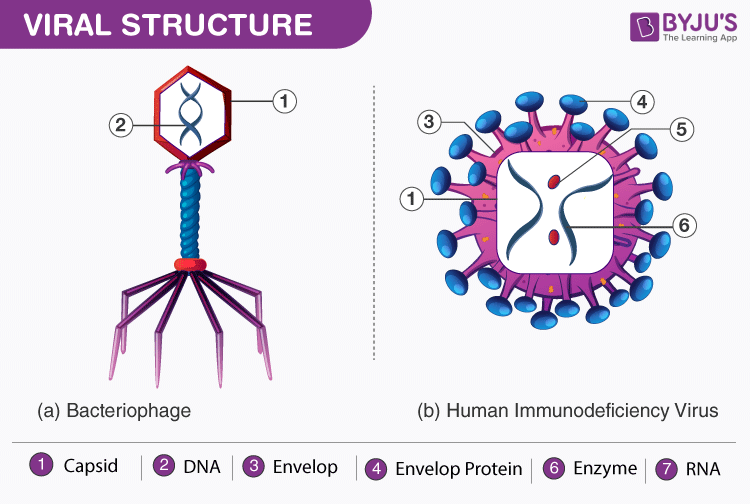What are Viral Diseases?
Viral diseases are infections caused by viruses. Different types of viruses cause different infections. Common cold is the most common type of viral infection that is caused by infections in the respiratory tract. Other viral diseases include:
- Chickenpox
- Herpes
- Influenza
- AIDS
- Mumps
- Measles
- Viral Hepatitis
Viruses also infect plants. Let us have an overview of the different types of viral diseases, their causes, symptoms and prevention methods.
Also Read: Bacterial Diseases

Types of Viral Diseases
There are different types of viral diseases. These include:
|
Viral Diseases in Humans |
Virus |
|
Common cold |
Rhinovirus |
|
Smallpox |
Variola virus |
|
Rabies |
Rabies lyssavirus |
| Hepatitis |
Hepatitis A virus, hepatitis B virus, Hepatitis C virus |
|
Measles |
Rubeola virus |
|
Poliomyelitis |
Poliovirus |
|
Influenza |
Influenza virus (RNA virus) |
|
Encephalitis |
Herpes Simplex Virus |
|
Mumps |
Paramyxovirus |
Causes of Viral Diseases
Viral diseases are mainly caused when a virus enters the human body and uses the host machinery to reproduce. If the body’s immune system fails to fight against viruses, it multiplies and spreads to other cells causing infections.
Symptoms of Viral Diseases
Following are the important symptoms of viral diseases:
- Flu-like symptoms such as fever, fatigue, sore throat, headache.
- Irritability
- Rashes
- Malaise
- Sneezing
- Swollen tonsils
- Excessive weight loss
Treatment of Viral Diseases
Viral diseases can be treated in the following ways:
- Proper nutrition
- Medication for fever, body ache and pain
- Proper rest
- Drinking more fluids
Human papillomavirus that leads to cervical dysplasia can be treated by removing the abnormal cells on the cervix of a female, surgically.
Also Read: Infectious Diseases
To know more about viral diseases, their causes, symptoms and treatment methods, keep visiting BYJU’S website or download BYJU’S app for further reference.

Comments